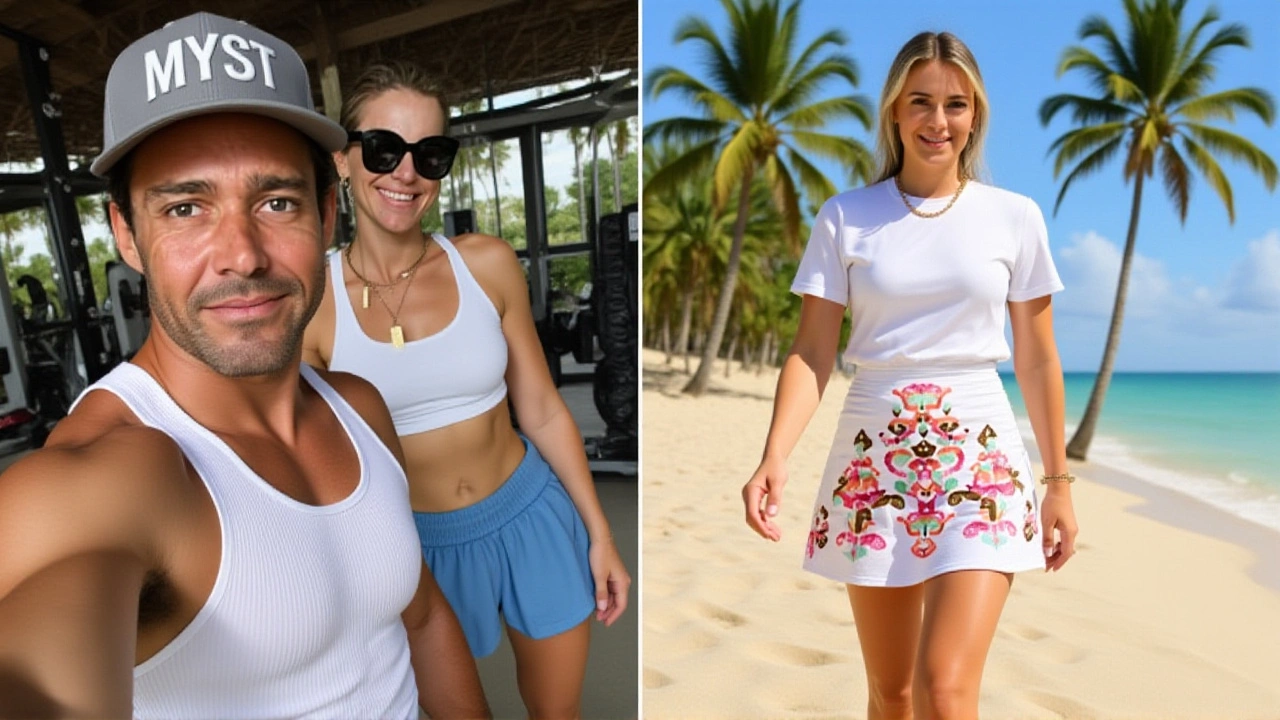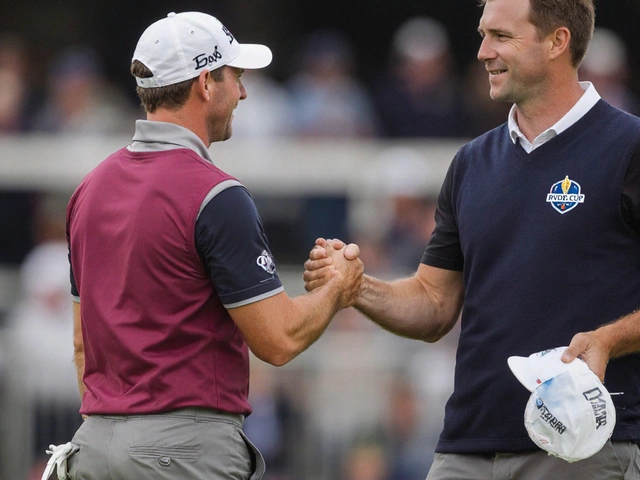On November 13, 2024, Spencer Matthews, the 37-year-old former star of Made in Chelsea, plunged into the icy waters of London’s Canary Wharf—not for a photo op, but to begin the most grueling physical challenge of his life. With no prior experience in full-distance triathlons, Matthews launched Project Se7enLondon, aiming to complete seven 140.6-mile triathlons across seven continents in just 21 days. He’d only gotten his wetsuit two days before. The world record? Nearly four years. His goal? One-third of that.
The Evolution of a Reality Star Turned Endurance Athlete
Few expected this from the man who once sipped prosecco on Chelsea rooftops. But Matthews’ transformation didn’t happen overnight. In early 2024, he ran 786 miles across the Jordanian desert in 30 straight days—marathons daily, under 40°C heat. That feat earned him a Guinness World Record for the most consecutive marathons run on sand. Then came the 24-hour run around Battersea Millennium Arena, where he covered 171.3 km, battling hallucinations and freezing temps, fueled by cup-a-soups and sheer will. "It was a big mental battle," he told This Morning in March 2025. "But it was also beautiful." These weren’t stunts. They were stepping stones. "I knew as soon as I was finding my stride out there in the desert that I wanted this to be a regular feeling," Matthews told Tri247. "I wanted to complicate it for myself."Project Se7en: The Plan, The Peril, The Purpose
The route is brutal in its logic: London (Europe), Arizona (North America), Cape Town (Africa), Perth (Oceania), Dubai (Asia), Rio (South America), and finally, Antarctica—where leopard seals have been known to kill. Each leg is a full Ironman: 2.4-mile swim, 112-mile bike, 26.2-mile run. No rest days. Just relentless movement, changing climates, and minimal recovery. He’s not training for Antarctica. "I’ve just been keeping fit," he admitted. "No strategy." That’s not recklessness—it’s a calculated gamble on human resilience. His support team, led by extreme endurance coach Chris Taylor, handles logistics, nutrition, and medical oversight. But the mental load? That’s all Matthews. And the reason? James' Place. The charity offers free, life-saving therapy to suicidal men—a cause deeply personal to Matthews. "I’ve been there," he’s said in interviews. "I drank too much. I lost my way. I didn’t talk." His Instagram bio, followed by nearly a million people, doesn’t just advertise the challenge—it screams it: "PROJECT SE7EN: 7 FULL 140.6 MILE TRIATHLONS, 7 CONTINENTS, 21 DAYS - For @jamesplaceuk."
Why This Isn’t Just Another Tough Challenge
This isn’t about breaking records for fame. It’s about dismantling stigma. Men in the UK are four times more likely to die by suicide than women. James’ Place has helped over 10,000 men since 2018, but funding remains precarious. Matthews’ campaign isn’t just raising money—it’s rewriting the narrative around male vulnerability. "These hard things are possible," he says. "Hopefully this journey can inspire men—especially—to get out there, talk, and do stuff that makes them feel alive." His journey echoes the quiet revolution in endurance sports: athletes using physical extremes not to glorify pain, but to amplify purpose. Think of Lewis Pugh swimming the North Pole to raise climate awareness. Or David Goggins turning trauma into testimony. Matthews is in that lineage. But he’s doing it without the training, without the gear, and with a vulnerability few athletes dare show.What Experts Say—and What You Shouldn’t Try at Home
Palatinate and Runner’s World UK are clear: Matthews’ feats are not a blueprint. They’re anomalies. "His achievements are not a model for the average runner," the outlet warns. "Attempting such exertion without expert medical supervision is dangerous." His body is a machine built by years of discipline, physiotherapy, and nutrition science. His mind? Shaped by therapy, sobriety, and a relentless refusal to stay silent. What he’s doing is extraordinary—but it’s not aspirational in the way most fitness influencers sell it. It’s revolutionary in a different way: it says, "You don’t have to be perfect to be powerful."
What’s Next? The Final Leg and the Ripple Effect
As of late November 2024, Matthews had completed the European, North American, and African legs. The Oceania and Asian segments are underway. The final stretch—Antarctica—is scheduled for early December. Temperatures there hover near -20°C. The course? Unmarked ice. The support? Minimal. If he finishes, he’ll not only break the world record—he’ll redefine what it means to be a man in crisis. And if he doesn’t? He’s already won. Because he showed up. He talked. He pushed. He inspired. The Made in Chelsea episode airing November 3, 2025, will likely feature his journey. But the real story isn’t on TV. It’s in the men who, after seeing him struggle through a swim in Dubai, finally called a helpline. Or the father who texted his son: "I’m going to therapy. Just like Spencer."Frequently Asked Questions
How is Project Se7en different from other endurance challenges?
Unlike most endurance events that focus on a single location or distance, Project Se7en combines seven full Ironman triathlons across wildly varying climates and terrains within 21 days. The previous record for completing triathlons on all seven continents took nearly four years. Matthews is attempting to do it in under three weeks—without prior triathlon experience—making it one of the most audacious feats in modern endurance history.
Why is James' Place the chosen charity?
James' Place is a UK-based charity offering free, professional therapy to men at risk of suicide. Matthews has openly discussed his own struggles with alcohol, depression, and isolation after his reality TV fame. He sees the charity’s work as vital—especially since men account for 75% of UK suicides. His campaign aims to normalize male vulnerability and encourage help-seeking behavior.
Did Spencer Matthews train for triathlons before this challenge?
No. Matthews had never completed a full-distance triathlon before Project Se7en. He received his first wetsuit just two days before the London leg. His background is in ultra-running and desert endurance, not swimming or cycling at elite levels. His success hinges on mental toughness, support staff, and a willingness to learn on the move—something experts say is unprecedented in this field.
What’s the risk of completing this challenge?
The risks are extreme: hypothermia in Antarctica, heatstroke in Dubai, dehydration across deserts, and cardiac strain from back-to-back Ironmans. Medical teams monitor him continuously, but his body is under unprecedented stress. Experts warn that attempting anything similar without years of preparation and professional oversight could be fatal. His journey is a testament to human will—but not a guide for amateurs.
How has the public responded to his journey?
The response has been overwhelmingly supportive, especially on social media. His Instagram posts from Antarctica and Dubai have garnered millions of views, with comments pouring in from men sharing their own mental health struggles. Fundraising for James' Place has surged by over 300% since November 2024, and several UK mental health organizations have partnered with his campaign to expand outreach programs.
Will Spencer Matthews continue with extreme challenges after Project Se7en?
He hasn’t ruled it out. In interviews, he’s hinted at a "next chapter"—possibly a solo trek to the South Pole or a transcontinental run across the Amazon. But his focus now is on sustaining the momentum for James' Place. "I don’t want this to be a moment," he said. "I want it to be a movement."



